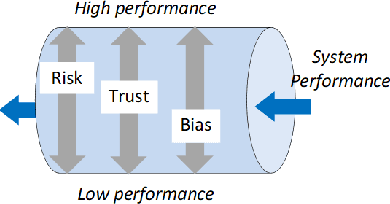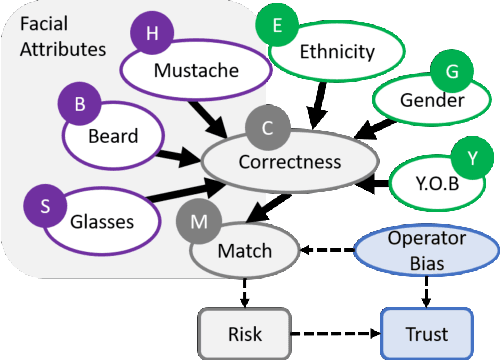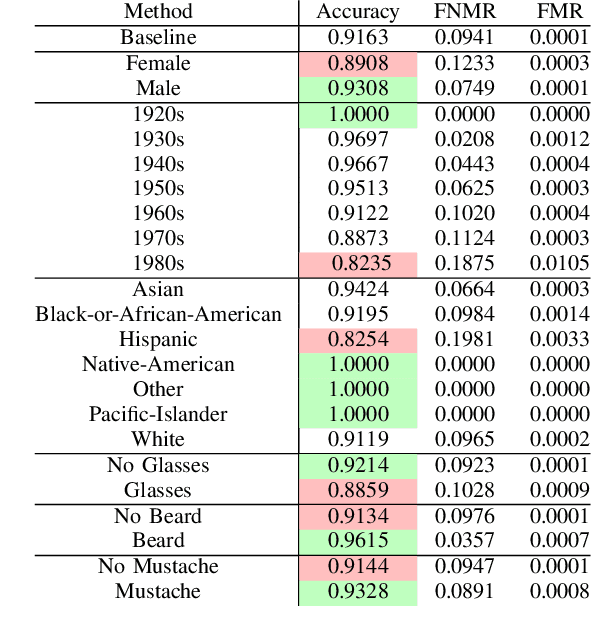Assessing Risks of Biases in Cognitive Decision Support Systems
Paper and Code
Jul 28, 2020



Recognizing, assessing, countering, and mitigating the biases of different nature from heterogeneous sources is a critical problem in designing a cognitive Decision Support System (DSS). An example of such a system is a cognitive biometric-enabled security checkpoint. Biased algorithms affect the decision-making process in an unpredictable way, e.g. face recognition for different demographic groups may severely impact the risk assessment at a checkpoint. This paper addresses a challenging research question on how to manage an ensemble of biases? We provide performance projections of the DSS operational landscape in terms of biases. A probabilistic reasoning technique is used for assessment of the risk of such biases. We also provide a motivational experiment using face biometric component of the checkpoint system which highlights the discovery of an ensemble of biases and the techniques to assess their risks.
 Add to Chrome
Add to Chrome Add to Firefox
Add to Firefox Add to Edge
Add to Edge